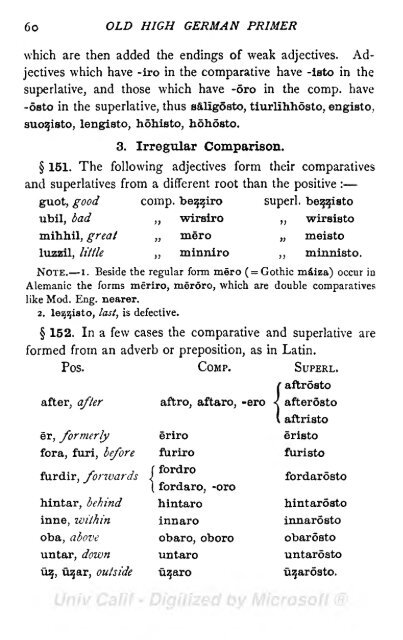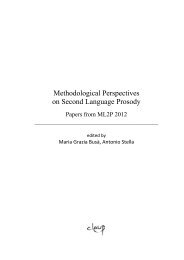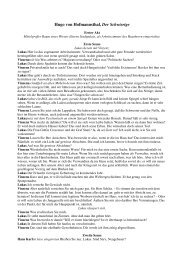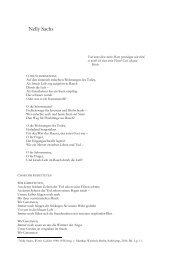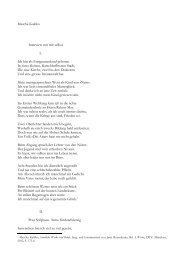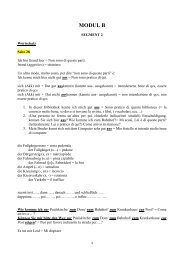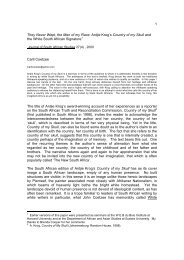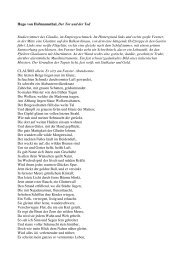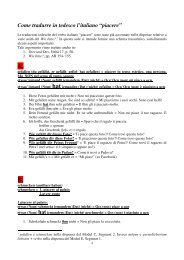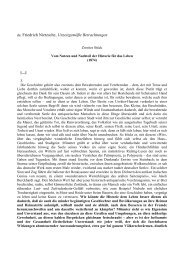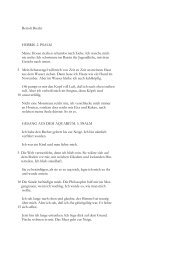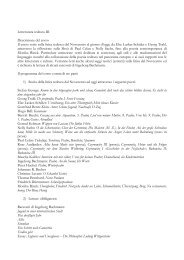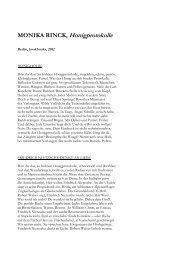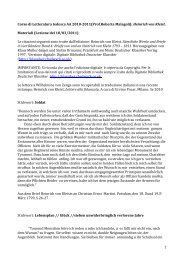Create successful ePaper yourself
Turn your PDF publications into a flip-book with our unique Google optimized e-Paper software.
60 OLD HIGH GERMAN PRIMER<br />
which are then added the endings of weak adjectives. Adjectives<br />
which have -iro in the comparative have -isto in the<br />
superlative, and those which have -oro in the comp. have<br />
-osto in the superlative, thus saligosto, tiurlihhosto, engisto.<br />
suogisto, lengisto, hohisto, hohosto.<br />
3. Irregular Comparison.<br />
151. The f<strong>ol</strong>lowing adjectives form their comparatives<br />
and superlatives from a different root than the positive<br />
:<br />
guot, good comp. be^ziro superl. bez^iato<br />
ubil, bad wirsiro wirsisto<br />
mihhil, great mero meisto<br />
luzzil, little minniro minnisto.<br />
NOTE. I. Beside the regular form mero (<br />
= Gothic m&iza) occur in<br />
Alemanic the forms meriro, meroro, which are double comparatives<br />
like Mod. Eng. nearer.<br />
2. lei^isto, last, is defective.<br />
152. In a few cases the comparative and superlative are<br />
formed from an adverb or preposition, as in <strong>Lat</strong>in.<br />
Pos. COMP. SUPERL.<br />
f aftrosto<br />
after, after aftro, aftaro. -ero < afterosto<br />
v<br />
aftristo<br />
er, formerly eriro eristo<br />
fora, furi, before furiro furiato<br />
furdir, forwards / ro<br />
hintar, behind<br />
( fordaro, -oro<br />
fordarosto


